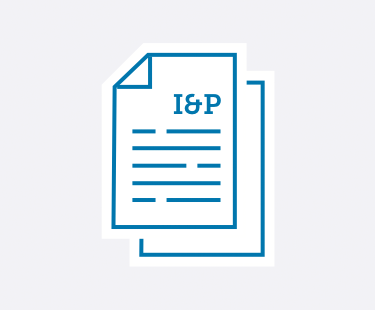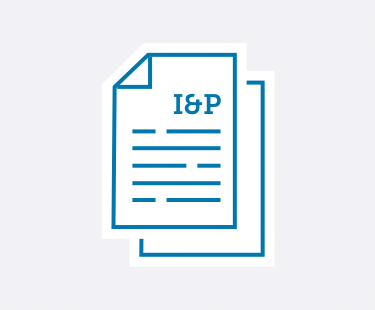

Learn practical strategies to handle emerging trends and leadership challenges in private schools.
No matter if you’re a School Head, Admission Director, Development Director, Board member, or any other private school administrator—Ideas & Perspectives®, ISM’s premier private school publication, has strategic solutions for the pervasive problems you face.
- Tuition not keeping pace with your expenses? In I&P, explore how to use strategic financial planning to create your budget and appropriately adjust your tuition.
- Enrollment dropping off? Discover how to implement the right admission and enrollment management strategies that engage your community—and fill your classrooms.
- Trouble retaining teachers? Learn how you can best support your teachers using ISM’s Comprehensive Faculty Development framework. Your faculty members will become more enthusiastic about their roles—which ultimately improves student outcomes.
- Fundraising campaigns not as successful as you’d hoped? Implement ISM’s practical advice and guidance to build a thriving annual fund, construct an effective capital campaign, and secure major donors—no matter your community size or location.
- Not sure how to provide professional development—for you and your staff? Learn ways to develop and fund a successful professional development strategy. You can improve teacher-centered satisfaction and growth, which in turn strengthens student-centered learning.
- Problematic schedule? You can master the challenges of scheduling with the help of ISM’s practical advice, based on our experience with hundreds of schools and our time-tested theories.
- And so much more.
I&P has shared targeted research, up-to-date insight, and sound theory with school leaders since 1975. More than 8,500 private school decision-makers find the answers to their schools’ administrative and governance matters in our advisory letter. We give you the strategic answers you need.
As an ISM Silver or Gold member, you not only receive issues online and in print 10 times a year, but you have access to 900+ articles in our web archive. Need help? It’s at your fingertips! Learn more and sign up for ISM's membership here.
Search
See the articles from our latest issue of Ideas & Perspectives.
Comparing and Contrasting Evaluation Approaches
Volume 37 No. 2 // February 10, 2012
In this issue, ISM is recommending an enhanced approach to teacher evaluation that stands in marked contrast to traditional “clipboard observation” methods. The chart below illustrates the similarities and differences between the two approaches.
1. Already a member? Click here to login.
2. Not a member? Click here to become a member.
3. Not sure? We'll help you figure it out.
Developing Faculty Through Coaching and Mentoring
Volume 37 No. 1 // January 13, 2012
As a key element of Comprehensive Faculty Development, it is important for administrators to have an intentional process for evaluating, coaching, and mentoring faculty. By actively gaining a clear, firsthand view of each faculty member’s skills, characteristics, and performance through observation and engagement, you will be able to help them grow and develop in ways that will directly impact the school’s students. In this process, teachers are accountable for pursuing ongoing professional growth and renewal, and administrators are accountable for observing, coaching, evaluating, and guiding faculty members’ growth in substantive ways.
1. Already a member? Click here to login.
2. Not a member? Click here to become a member.
3. Not sure? We'll help you figure it out.
Systematically Attracting, Developing, Rewarding, and Retaining Faculty: A Mission-Based Model for 21st Century Schools
Volume 37 No. 1 // January 13, 2012
This article examines the need for 21st Century Schools to address and manage all of their employment needs—e.g., hiring, evaluation, corrective action—as part of an integrated approach. During the past 18 months, ISM has been engaged in an intensive study of the needs of the 21st Century School.1 With specific regard to faculty, we believe that to thrive, schools will need to: measure teacher effectiveness on an ongoing basis (such as through annual evaluations); establish annual career-long improvement plans that invest in each teacher’s strengths;2 and hold ineffective teachers accountable.3 These objectives are best achieved by taking an active, integrated approach for engaging, managing, and developing the school’s faculty. Our model, called Comprehensive Faculty Development, is a mission-based series of interrelated activities through which the Head and her deputies systematically work to attract, develop, evaluate, reward, and retain teachers who deliver the mission to students with excellence.4
1. Already a member? Click here to login.
2. Not a member? Click here to become a member.
3. Not sure? We'll help you figure it out.
The School Head-Business Manager Partnership
Volume 37 No. 1 // January 13, 2012
The Board of Trustees holds you, the School Head, ultimately accountable for the prudent fiscal management of the school. You, in turn, rely on your Business Manager to shoulder much of the responsibility for the school’s fiscal affairs, given your plethora of responsibilities. Having a strong, trusted partner in this area makes it possible for you to devote more of your time and attention to other areas of school operation. Even though the Board holds you accountable for the school’s overall fiscal management, the Business Manager is typically viewed by your Board as having special knowledge or expertise in this area. In addition, the Business Manager is the one member of your Management Team who is in frequent contact with the Treasurer and other members of your Board.
1. Already a member? Click here to login.
2. Not a member? Click here to become a member.
3. Not sure? We'll help you figure it out.
After-School Programs for Middle School Students
Volume 36 No. 16 // December 19, 2011
Extended day programs that meet the demanding needs of middle school students are in short supply. According to a recent study, 34% of middle school students are unsupervised in the after-school hours; only 6% are in any kind of organized program.1 Existing programs that include 10- to 15-year-olds are generally only extensions of those for younger children—consequently, preteens and teens often refuse to attend.
1. Already a member? Click here to login.
2. Not a member? Click here to become a member.
3. Not sure? We'll help you figure it out.
The 21st Century School: Technology and Small Children
Volume 36 No. 16 // December 19, 2011
In a previous article, ISM suggested that a fourth plank in the 21st Century School is “the individualization of the content and delivery of curriculum, which meets the needs and passions of the learner at the rate best suited to that learner, using blended learning as the means.” This was applied exclusively to middle and upper schools, leaving the question as to what part technology plays in the lower school. Subsequently, ISM Success Predictor No. 3 suggests that “interdisciplinary, flexible, and immersive curriculum/pedagogy” is intrinsic to 21st century teaching, and is applicable at all levels of the school.
1. Already a member? Click here to login.
2. Not a member? Click here to become a member.
3. Not sure? We'll help you figure it out.
Space Needs and Your School’s Schedule
Volume 36 No. 16 // December 19, 2011
Space is an expensive commodity in schools. Yet, without adequate and appropriate space, teachers will be hamstrung in developing and delivering excellence in programming. From a student access point of view, the right number of classrooms can make your scheduler’s job a pleasure! The design of your schedule will have a significant impact on how much space and how many classrooms you want. Finally, what you want to do in the 21st century classroom will drive the kind of space you require.
1. Already a member? Click here to login.
2. Not a member? Click here to become a member.
3. Not sure? We'll help you figure it out.
Campaign Gift Pyramid Demonstrates Progress and Encourages Competition
Volume 36 No. 15 // November 23, 2011
One of the most important tools your school needs when conducting a major fund-raising campaign is a gift chart. This illustrates to your donors and prospects how many gifts you must receive—and in what amounts—to reach your campaign goal. Gift charts are not created by the following math: to raise $500,000, we will ask 100 people for $5,000. Instead, what is required is a gift chart built like a pyramid—the campaign needs one top gift, several leadership gifts, and many smaller gifts.
1. Already a member? Click here to login.
2. Not a member? Click here to become a member.
3. Not sure? We'll help you figure it out.
Faculty Compensation, 2010–11: A Dangerous Gender Divide
Volume 36 No. 15 // November 23, 2011
In this article, part of our continuing series analyzing salaries and benefits in private-independent schools, we assess faculty salaries from a gender perspective. The results of the ISM Faculty and Management Compensation Survey raise a cautionary flag regarding potential gender-based pay discrimination that all schools need to consider carefully.
1. Already a member? Click here to login.
2. Not a member? Click here to become a member.
3. Not sure? We'll help you figure it out.
The 21st Century Academic Administrator and Teaching
Volume 36 No. 14 // November 7, 2011
In previous I&P articles, ISM has noted that regular team “walkarounds” by the School Head and academic administrators are a prime administrative task for improving the capacity of adults in your school. This leadership style requires the School Head to be physically and visibly present to every student and employee, and to develop teacher leaders. The primary task of all academic administrators is facilitating the development of faculty who are the interface of the mission with the students. This has been one of ISM’s most consistent and insistent teachings for academic administrators—that they view their faculty as their own “works of art” and move persistently to improve both the individual faculty member as well as the faculty culture as a whole.
1. Already a member? Click here to login.
2. Not a member? Click here to become a member.
3. Not sure? We'll help you figure it out.


